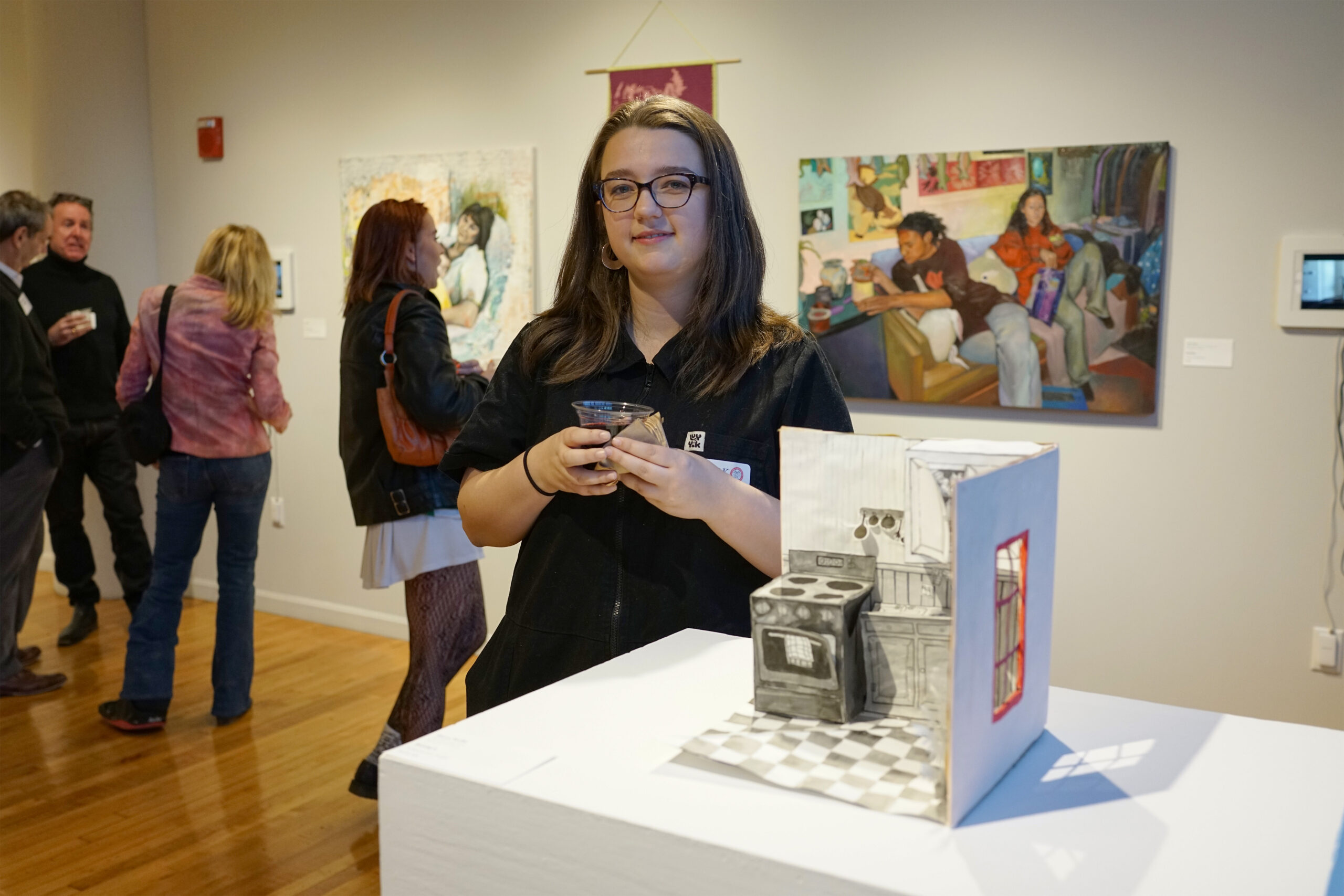Art provides ‘building blocks’ to language

This fall, after a summer spent relaxing at home, Nora Rueffer ’24 will travel to Austria, supported by a prestigious Fulbright Award from the U.S. Department of State’s Bureau of Educational and Cultural Affairs.
Rueffer, a double major in art history and studio art who was born in Germany and lived in Frankfurt until moving to the U.S. at 14, received a Fulbright Combined Award. She will be a teaching assistant in an English language classroom and will also be conducting research that she hopes to have published once her fellowship is complete. Hers was one of two Fulbrights with a Clark connection.
Rueffer will be visiting museums in Austria to learn how they present their collections to visitors who may not speak German. “I love the idea of making things accessible in different languages. It helps not only tourists but also the tourism industry, which is so important in Austria,” she says.
Her research will look at the reading comprehension level of museum materials and the number of languages in which they are offered. If maps are available in five languages but wall text is only in two, what does that mean for visitors? And is the text in each language written at the same level of difficulty? Rueffer plans to share her analysis with the museums she visits.
“There’s a big shift happening in the museum industry right now,” Rueffer adds, noting that museums and other cultural institutions are being pressed to become more accessible to the communities of which they are a part, particularly in the U.S. She notes that the Fitchburg Art Museum — whose director is a fellow Clarkie, Nicholas Capasso ’81 — is the first fully bilingual museum in New England.
Rueffer’s Fulbright research is a natural extension work she did as a Clark student. As an intern last summer at the Cooper Hewitt, Smithsonian Design Museum, she created a prototype design dictionary to accompany an exhibit. And as a Steinbrecher Fellow in 2022 she created “Worcester Public Art for ESL students,” a booklet with accompanying worksheets that introduces some of the city’s iconic public art installations to English learners. The booklet, which includes descriptions and histories of six Worcester artworks with technical terms or difficult words emphasized in bold and explained in the glossary, is being used in adult English language classes throughout Worcester.
“Art is a really good language-learning tool,” she says. “You can describe what you see — colors, shapes — in so many words. Then you slowly start bringing in verbs and tenses. Art can provide the building blocks to learn any language.”
During her undergraduate years, Rueffer also did several projects with the Worcester Art Museum related to accessibility. She collaborated with students at WPI to create content for a verbal description tour of the museum, and helped develop the process for writing image descriptions of WAM’s Arms and Armor collection. Both projects were designed to help visually impaired people interact with the museum’s digital resources.
“I was not expecting to get this,” Rueffer says of the Fulbright Award. “It’s incredible — I’m so grateful for having received it.” She adds that she is thankful for the support of her advisor, Kristina Wilson, professor of art history, and Steven Moon, director of special academic opportunities in the Dean of the College office, as well as everyone she worked with at the Worcester Art Museum.
“Nora’s Fulbright to Austria is the culmination of her extremely hard work not just in art history and studio art, but also her work beyond school as an online English teacher for non-native speakers recently immigrated to the Worcester area,” Moon says. “These parts of her Clark experience are both a part of her unique Fulbright award, which includes both teaching English and conducting research on museum informational materials in Salzburg.”
“Getting to work with our university’s wonderful students and alumni only affirms that Clarkies are competitive candidates for prestigious awards such as the Fulbright. We are very much still rebuilding the post-COVID pipeline to these fellowships, and I would love to see even more students apply,” Moon adds.


